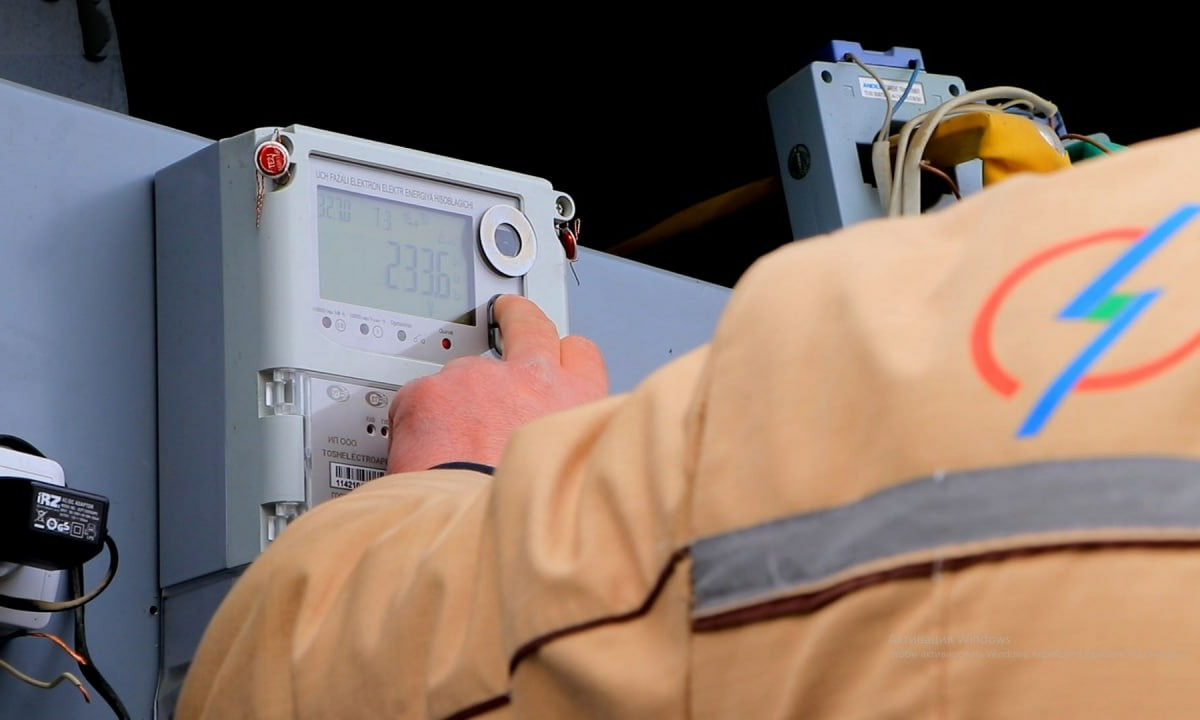Social media has been abuzz with discussions about the 200 kWh monthly basic norm for electricity consumption introduced on May 1, 2024.
In response to these discussions, organizations within the energy system have issued a joint statement.
The statement recalls that by the decision of the Cabinet of Ministers dated April 16, 2024, the monthly basic consumption norms for household consumers were approved effective from May 1 of this year.
"The main purpose of this measure is to increase the efficiency of electricity consumption among consumers, to properly and accurately distribute the funds allocated by the state to cover the population's expenses, and to ensure the reliable supply of fuel and energy resources," the statement says.
According to analysis, it is planned that the population of the republic will consume a total of 21.2 billion kWh of electricity in 2024, of which consumers with an average monthly consumption of up to 200 kWh will make up 60% of the total number of subscribers throughout the year.
"Based on the above and considering that electricity consumption does not significantly fluctuate throughout the year, a uniform basic norm has been implemented for the entire year.
Firstly, currently, the cost of producing 1 kWh of electricity is 895 UZS (1,002 UZS including VAT).
For each kWh of electricity delivered to the population within the basic norm, 552.4 UZS, and for consumption between 201 kWh and 1,000 kWh, an additional 102.1 UZS per kWh are subsidized by the state for each consumer.
The production cost of 1 kWh of electricity is 741.93 UZS, the transportation cost is 57.8 UZS, and the distribution and sales costs are 202.4 UZS.
Thus, the state subsidizes 447.0 billion UZS for consumers using up to 200 kWh of electricity (71% of consumers) and 30.2 billion UZS for consumption between 201 and 1,000 kWh.
Secondly, the basic norm is the consumption volume of up to 200 kWh per month, and within this consumption range, all household consumers pay a "preferential" rate of 450 UZS (including VAT) per kWh," the system organizations emphasized.
The statement notes that in June of this year, 71% of the population consumed up to 200 kWh of electricity.
"This indicates that 71% of consumers did not exceed the established limit. Therefore, there is no basis for increasing the monthly basic norm of 200 kWh for consumers in the near future," the report said.
Additionally, 22% of consumers used between 201 and 1,000 kWh and paid 900 UZS. Among them, 11% consumed between 201 and 300 kWh.
According to responsible authorities, consumers using up to 300 kWh do not pay the full 900 UZS. They pay 450 UZS for up to 200 kWh and 900 UZS for the remaining 100 kWh. Thus, for 300 kWh, the price has not significantly increased (an additional 45,000 UZS (100*450) is paid for consumption exceeding the basic norm). Moreover, the 900 UZS rate is still below the production cost of electricity.
"The remaining 7% of the population consumed between 1,001 and 10,000 kWh of electricity and paid 1,350 UZS.
These households do not require subsidies and have additional amenities beyond basic needs, such as electric vehicles, swimming pools, fountains, numerous lighting fixtures, or other expensive household electronic devices," the report added.
Authorized agencies highlight that one household consuming 1,000 kWh uses as much as ten efficient and energy-saving consumers, and one household consuming 10,000 kWh uses as much as one hundred efficient consumers.
Additionally, a total of 1.1 billion kWh of electricity was consumed across the republic.
Of this, 71% of consumers used up to 200 kWh, accounting for 40% of total consumption.
Another 11% of consumers used between 201 and 300 kWh, accounting for 19% of total consumption, and consumers using between 301 and 500 kWh accounted for 20% of total consumption.
"It should be noted that the use of increasing tariffs has led to greater efficiency in electricity consumption among consumers. As a result, system loads have decreased, and the number of power outages and accidents for the population has also decreased," the report said.
For information, in recent days, hashtags calling for the abolition of the established basic norm for electricity consumption have become quite a trend among social media users.
Previously, there were instances of double billing for electricity payments. The Regional Electric Networks attributed this to a technical malfunction.






